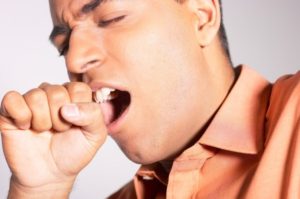Dangers of Not Getting Enough Sleep
 There are many dangers of not getting enough sleep for people who cannot get enough sleep due to their jobs, health issues and possibly bad habits that develop over time in our daily lives. For example having a coffee within a couple of hours before you go to bed can keep a lot of people up for hours or even cause them to wake up during the night as their bodies process the caffeine in the coffee. There are many reasons regarding why people do not get enough sleep, however we will focus on some of the dangers associated with sleep deprivation and then review some of the steps you can take to try to get better sleep.
There are many dangers of not getting enough sleep for people who cannot get enough sleep due to their jobs, health issues and possibly bad habits that develop over time in our daily lives. For example having a coffee within a couple of hours before you go to bed can keep a lot of people up for hours or even cause them to wake up during the night as their bodies process the caffeine in the coffee. There are many reasons regarding why people do not get enough sleep, however we will focus on some of the dangers associated with sleep deprivation and then review some of the steps you can take to try to get better sleep.
Symptoms and / Or Causes of not Getting enough sleep
The dangers of not getting enough sleep can involve the following which we will expand on further:
- Fatigue
- Pain
- Depression
- Weight Gain
- Heart Disease
- Death
Fatigue
Chronic fatigue can affect us in many different ways. We are obviously not as alert as we should be which makes us prone to having more accidents of all kinds including while driving a car, working at physical jobs and just not being alert when we cross the street for example.
Our bodies also suffer. In fact every organ in our body will be impacted by lack of sleep which if allowed to go on for a long time can also have very negative effects on our overall health. When we are sick we will be sicker, even cancers can advance more quickly when our bodies are too tired to fight diseases of all kinds.
Pain
Even pain from things like arthritis, cuts, broken bones, etc will feel far worse when we are tired. Our ability to deal with the pain is impaired and we just do not have the patience as well.
Depression
People can become very depressed as well. If you are prone to depression, fatigue and lack of sleep will only make this worse.
Weight Gain
We tend to eat more when we are tired. Our bodies crave energy to make up for the lack of sleep and tired feeling. We eat more and we gain weight as well more so when we are tired all of the time we gain weight.
Heart Disease
The risk of heart disease goes up as well due to our bodies being under stress due to lack of sleep. If you have underlying heart disease from other issues, this can only make it worse.
Death
Chronic lack of sleep can trigger events in your body that might not otherwise occur. Heart attacks, strokes etc can be triggered by chronic fatigue and lack of sleep.
How to get More Sleep
We just watched a short documentary on getting enough sleep and what the impacts can be if you do not get enough sleep. They suggested that the short list of steps to take to help ensure that you get a good sleep every night is as follows:
- Go to bed at the same time every day
- Get up at the same time every day, including weekends
- Limit alcohol to no more than 3 drinks two hours before you go to bed
- Limit exercise to greater than 4 hours before you go to bed
- Try to keep the same routine
If you sleep in on the weekends, after two days, your body adjusts and expects to sleep in on Monday. This is probably why Mondays are always so hard and difficult for people. Their bodies are expecting to sleep in, but cannot because they have to get up earlier and go to work. They begin the work week feeling tired and fatigued and not totally alert.
The dangers of not getting enough sleep can be decreased by sticking to a routine. Avoid any kind of stimulants and also depressant such as alcohol. If these steps do not work, then there could be some other underlying health issue. It could be preventing people from getting a good nights sleep. For example in older people above the age of 45, sleep apnea can be a major cause of not getting enough sleep which contributes to fatigue and other health issues.
If you have tried all of the above and you are still not getting enough sleep it may be wise to check in with your family doctor to asses any other reasons that might be preventing you from sleeping. For more information about the dangers of not getting enough sleep, click here.
You can follow any responses to this entry through the RSS 2.0 feed. You can leave a response, or trackback from your own site.


Leave a Reply